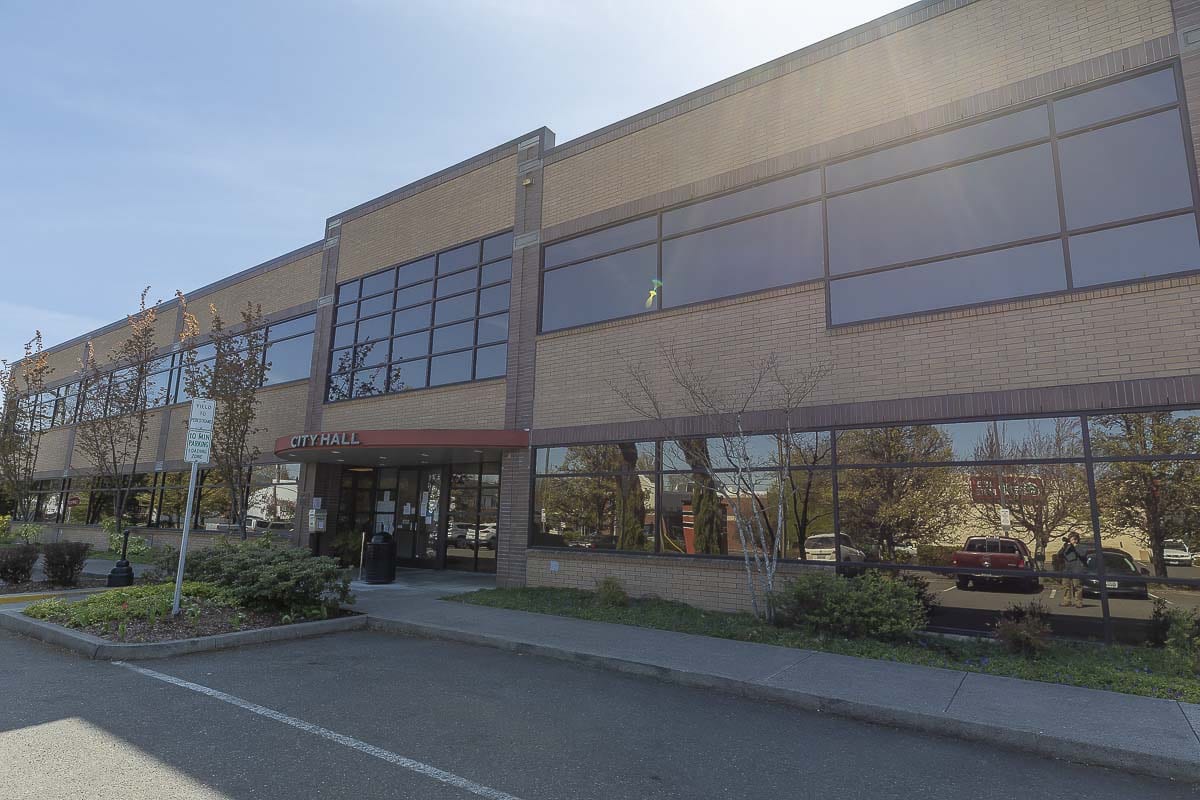The city will also eliminate car tab fees starting next year
BATTLE GROUND — At a meeting on Monday night, held remotely, members of the Battle Ground City Council voted to move up the date of their planned utility tax rate cut.
After voters approved annexing the city into Clark County Fire District 3 last November, the council voted to implement a 10 percent utility tax decrease as of Jan. 1, 2021, which would reduce the current 22 percent rate to 12 percent.

On Monday, the council voted 6-1 to implement that cut effective immediately as a means of helping residents during the ongoing COVID-19 pandemic.
“The response to COVID-19 has created adverse economic consequences in our community – especially for workers and small businesses,” said Battle Ground Mayor Adrian Cortes in a statement following the vote. “Council’s policy decision to reduce the utility tax is intended to help the community through this difficult time.”
Enacting the utility rate cut now is expected to cost the city approximately $540,000 over the remainder of the year, which will come out of the city’s reserve savings. The anticipated savings for an average ratepayer is $60 for the rest of 2020.
The lone no vote came from Councilor Philip Johnson, who pointed out that the city has struggled with finding sufficient funding to deal with its growing backlog of deteriorating streets.
“I think we can probably tell our constituents that we can do with $60 quite a bit over the period of six months,” Johnson said. “I really don’t see this as a wise use of taxpayer dollars when we have so many issues ahead of us.”
But Councilor Mike Dalesandro disagreed.
“I think that this is one of the few levers we have to help with this crisis in our community,” Dalesandro said.
City Manager Erin Erdman said the city has sufficient emergency funds on hand to absorb the lost revenue.
Car tab fees eliminated
The councilors also voted unanimously to eliminate their Transportation Benefit District car tab fee of $20, starting in 2021.
Councilor Shauna Walters asked that the ordinance be introduced in order to help residents financially, but also to align with the will of the voters who approved Initiative 976 in November, which eliminated transportation benefit districts, and reduced car tabs to a flat $30.
“This is something that we can do while we wait for the Washington State Supreme Court to make their decision on the constitutionality of it,” Walters said Monday. “And it’s not going to affect us if down the line, they determined that the law is not constitutional.”
The original ordinance would have eliminated the car tab fee on Aug. 1, but Councilors Johnson and Shane Bowman argued that would be unfair to people who had already paid the fee this year.
“You figure out how Olympia is going to give you back, in my case, $80,” Johnson said, “while my neighbor next door, whose cars don’t come up until September, he’s free and clear.”
The city has already been making the assumption in its budget that the car tab fee would likely be going away, which was part of the argument for passing the fire annexation measure, to free up property tax revenue for street repairs, amongst other things.
The Transportation Benefit District authority would remain, but would no longer receive funding from car tab fees.
Business license fees remain
The council members also considered a proposal to eliminate the business license fee from July 15 through the following July 14 of 2021, similar to a measure enacted by Vancouver City Council.
The move met with some resistance though, with several councilors arguing that there was no mechanism to separate major corporations from small businesses when it came to eliminating the fee.
“I’m sure the people in Bentonville, Arkansas, at Walmart need the money. And the people in Cincinnati at Kroger need the money. And the people down in Oakland at Safeway and Albertsons need the money,” said Johnson, who pays the annual $41 fee, along with council member Bowman. “I don’t mind giving it to the people inside the city limits, but I’m not too hip on giving it outside the city limits.”
The initial business licensing fee in Battle Ground is $24, with a $41 annual renewal and a $21 late fee. Staff estimated the resolution would have cost the city around $6,000 a month during the 12 month period it was in place.
Battle Ground City Attorney Christine Hayes said she could look into whether there is a mechanism to allow them to forgive the licensing fee only for businesses under a certain size, or with owners living inside the city, and then bring the ordinance back if possible.
Emergency ordinance remains for now
The council also decided to keep their emergency ordinance in place, at least for now. Councilor Brian Munson pushed to have it removed, arguing the city no longer has an emergency in place when it comes to the COVID-19 outbreak.
But Erdman warned that the emergency order prevents people living in Battle Ground from having their water shut off, or late payment fees assessed. Eliminating it could also make obtaining state or federal disaster funding more difficult.
The councilors agreed to continue revisiting the emergency declaration at their upcoming meetings.




